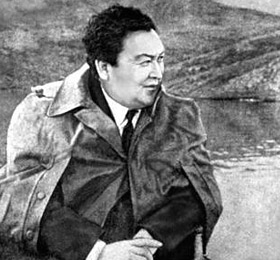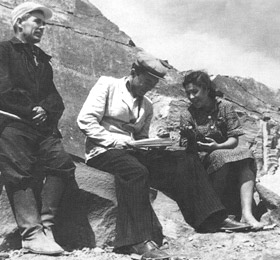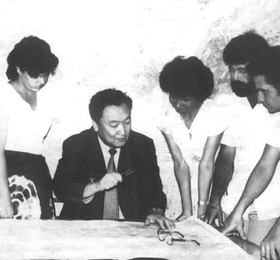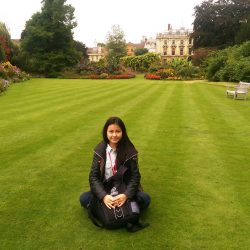Banu Ospanova
Then the Nazarbayev University student from Shymkent, Banu — thanks to the Shakhmardan Yessenov Foundation internship grant — did her research in the summer of 2015 at the Center for Infectious Medicine at one of Europe’s largest universities, the Karolinska Institutet in Sweden. Today, Banu is studying integrated immunology at no less than Oxford University’s Masters Program. This has also been possible with foundation’s financial assistance.
1. Why did you choose this specialty at the University?
Biomedicine and medicine encompass several disciplines such as biology, chemistry, physics, sociology and psychology. I’ve always been fascinated by these and especially their practical part. There was a point when I decided medicine is exactly what I need, i.e. the ability to integrate knowledge, make decisions in critical situations, taking responsibility, working with people and never stop learning. In my last year of high school, when it was time to choose, the decision was final. This is where I wanted to direct all my time and effort. And no regrets.
2. What was the most difficult in the competition for the internship?
Not counting the fact that I’m not used to write in Russian and Kazakh, and the competition required us to write a motivation letter, it was not difficult to me at all. I knew I needed to put myself as a candidate out there in a proper way and after that it all depended on whether I was the right candidate for the program. The Experts team, as I understand it, had no specific image of the “right” candidate in their minds: excellent grades, experience in the laboratories or the correct answers to the questions in the second round (and I’m positive I answered just one question!) did not guarantee the win.
3. Anything interesting happened during the internship in Sweden?
There were 19 students from Europe’s best schools and we worked alongside in this program that accepted me for the internship. Part of which was in the workshops and interesting social events. By the end of our research all of us had to make a scientific report and we presented our work in front of the others. Meeting with all these peers, being able to compare myself with them, examining my scientific attitudes, interests and future plans, all of this was rewarding. Another part of my lab internship had me studying a fairly recently discovered line of immune cells (innate lymphoid type 2 cells, ILC2), which play an important role in protecting the body against a wide range of pathogens (any microorganism that can cause disease). As a result, I gained a great experience in the lab and good research results: we were able to identify functions of certain receptors in target cells. The results of our research will ultimately help to design drugs.
4. What are the outcomes of the internship to you personally?
In Sweden I learned to extract bone marrow, lymph nodes and spleen of experimental animals, to isolate and grow from the extracted organs cultures of targeted cells. I learned to work with flow cytometry and analyze data using FlowJo software. My internship supervisor from the Karolinska Institutet included the results of my research in scientific manuscript and put me as a co-author. It was published in The Journal of Immunology. Further, working in the lab I learned about the one year-master program in integrated immunology at Oxford, which I saw as a great transition from theoretical science to practical medicine. With the support and recommendations from supervisors both in Karolinska Institutet and Nazarbayev University, I applied and enrolled for the program. And I believe my summer research internship played a major role in my acceptance to Oxford’s program. I’ll complete my master program in July 2017. In my last months at Oxford I am working on a project in transplantation formy thesis, and in August I plan to begin studying in Nazarbayev University’s medical school.
6.11.17, Stories
Seen by: 592





